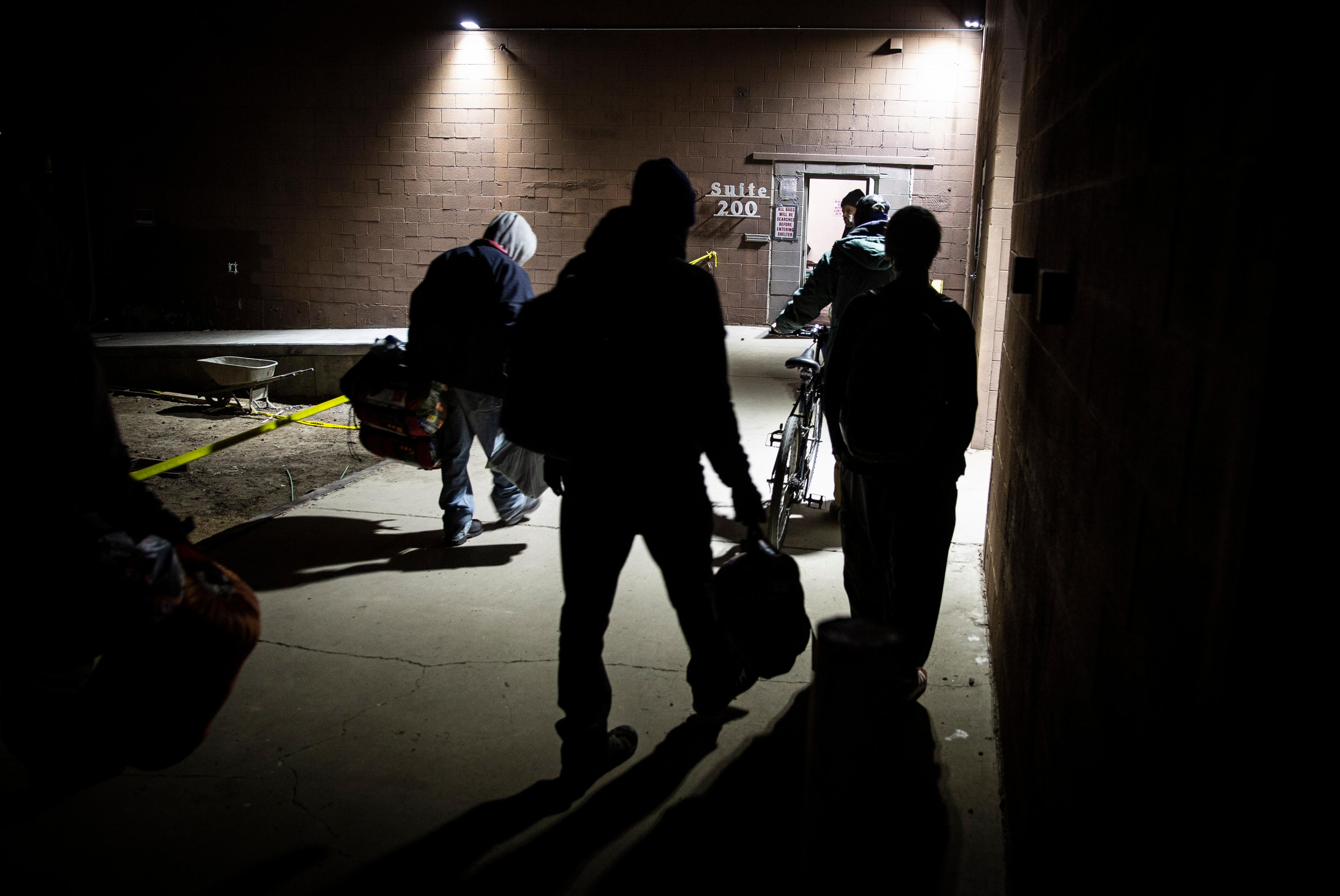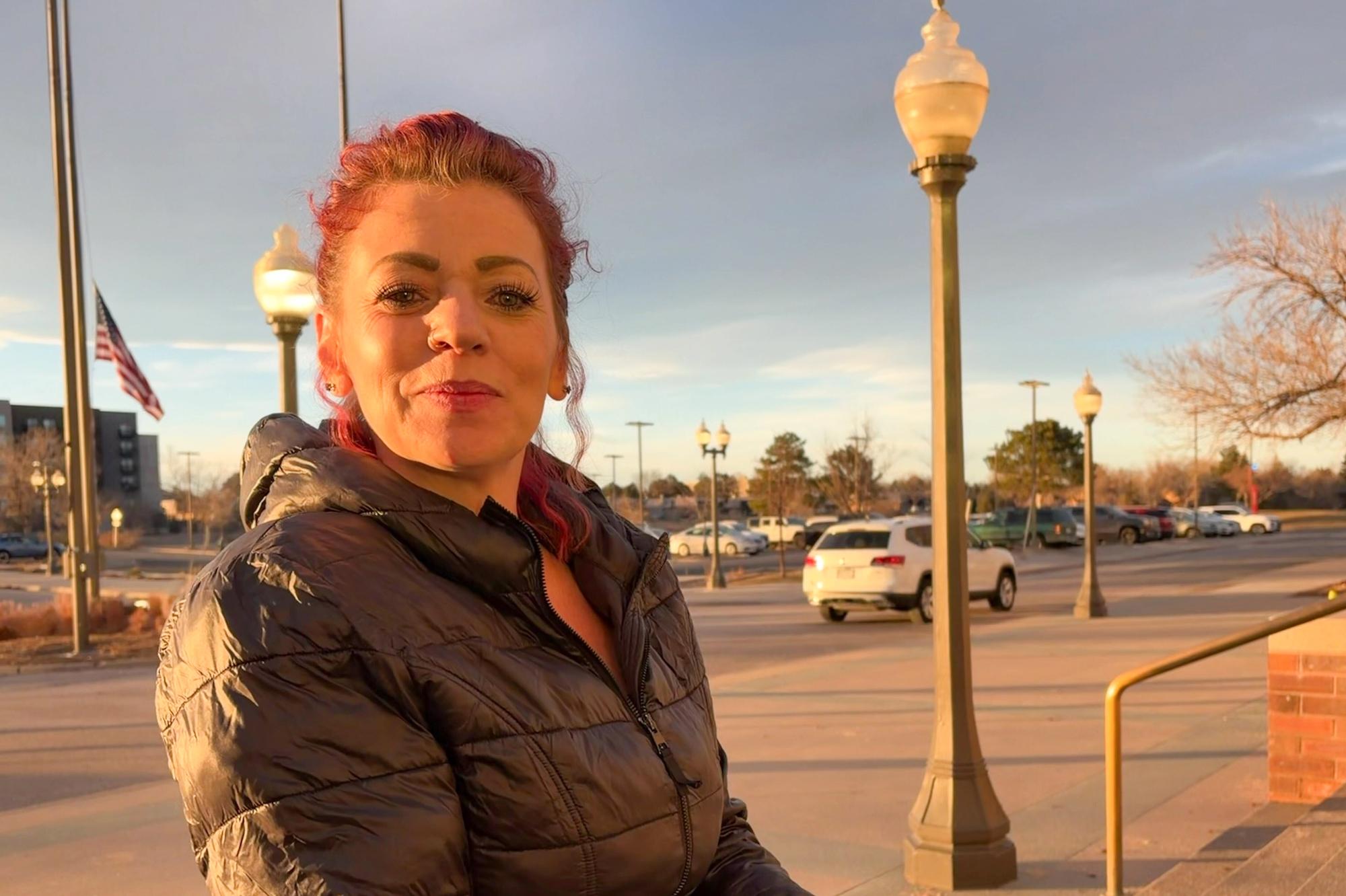

For years, Matthew Hernandez had a system. In the summer, he’d work construction in mountain towns around Glenwood Springs. In the fall, he’d go home to Pueblo and spend the winter with his mother.
That changed last year.
“She didn't want to go out for Thanksgiving dinner,” he said. “She goes, ‘I'm leaving.’ I'm like, ‘What? What do you mean you're leaving?’ ”
She died the next day, Hernandez said. So this fall when he left the mountains he found himself camping near Lake Minnequa on Pueblo’s south side. Then just last week his tent and other belongings were stolen. He warmed up at a nearby hospital, where staff told him the city was about to open a new homeless shelter.
“So boom, here I am,” Hernandez said, as he flashed a fleeting smile at the shelter earlier this week.
Up until last Saturday, Pueblo didn’t have an overnight homeless shelter. But the city spent $250,000 to lease and renovate an old food storage warehouse in an area filled with auto repair shops, light industry, and the Pueblo Chieftain. It contracted with the Pueblo Rescue Mission to run it; the mission closed its own shelter a few years ago.

The shelter feels massive inside. Its cavernous main space has 16-foot-high ceilings and could fit hundreds of people if it needed to — men on one side of a makeshift wall, women on the other. Since it opened last Saturday, it’s housed anywhere from a dozen to 50 people a night on neatly lined-up mats. Guests must use portable toilets parked in the dusty parking lot area, and the only food served comes in the form of donated box lunches.
“We're making it work,” said Kathy Cline, Pueblo Rescue Mission’s executive director. She and her part-time staff of eight are hoping an upcoming donation will include cots.
Until the warehouse plan came together in late November, the city was going to house homeless residents in two propane-heated tents on a vacant lot through the winter. City Councilor Mark Aliff, who’s led the effort to find shelter space over the last six months, said the tent idea was truly a last-ditch solution — a defeat, really.
But he’s not content with the current set-up either.

“This temporary solution that we have now is also leaves an empty feeling,” he said. “It's great that we have a building. It's great that we have people that are getting out of the weather. But until we have a permanent solution, it's never going to be a good feeling.”
Aliff said Pueblo’s homeless shelter situation was relatively stable for more than 30 years. But over the last few years, all three of the city’s shelters shut down as the non-profits behind them focused on other areas of need -- and created a new need in the process.
Cline said there are other contributing factors to homelessness in the area. There’s been an influx of low-income people moving to Pueblo seeking affordable health care; Colorado expanded Medicaid while Kansas, Oklahoma and Texas didn’t. Rents are going up, and utility costs are high as well.
And then there’s marijuana. Some Puebloans think it’s a magnet for homeless.
“Their perception is that the homeless are just drug-addicted, crazed, lazy, no-good people that have come from elsewhere and are just sponging off of the community,” Aliff said.
A Colorado State University-Pueblo study earlier this year said there’s no clear evidence linking marijuana to homelessness, and Aliff said he’s doing what he can to fight the stereotype.
“You just have to keep fighting and fighting and fighting, and explaining and explaining and explaining,” he said.
The campaign isn’t working on Gary Jordan, who owns an auto body shop a block away from the new shelter.
“I like a roof over my head. I like to sleep in a bed. In order for me to do that, I have to wake up and go to work and abide by rules,” Jordan said. “These people do not want to do that. So why should I have to take care of them as a taxpayer?”
Jordan complains the city never approached him about the shelter until the plan to open it was already it place. Since then he’s found syringes in the street and his new $7,000 surveillance system caught people urinating on his building. Jordan said he’d prefer churches take the lead instead of the city.
Aliff said he’ll convene a new commission on homelessness next year aimed at putting together a permanent shelter, and better organizing all types of social services aimed at homeless residents.
Hernandez probably won’t be around for those discussions -- he wanted to stick around Pueblo, but a job offer fell through because it required a driver’s license.
“I'm scared of doing that because I'll start driving again,” Hernandez said. He paused, then continued. “I drink. I drink daily.”
Hernandez thinks he’ll head back to the mountains soon, where he hopes to make some money shoveling snow. He’ll mull over his plans for a few more weeks — there’s no big hurry now that he has a roof over his head.









